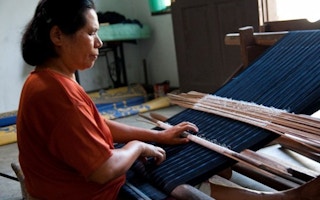An Indonesian hydropower project has earned the first ‘social’ carbon credits to be issued in Southeast Asia, setting the stage for further carbon-reduction projects in the rapidly developing region.
Zurich-based South Pole Carbon Asset Management, a firm that develops projects to reduce carbon emissions, announced the new social carbon credits last Monday for a run-of-the-river hydropower project in Renun on the island of Sumatra.
Carbon credits, which are issued for projects that reduce climate-changing carbon dioxide (CO2) emissions such as renewable energy and energy efficiency developments, are sold on various carbon markets to companies that want to offset their carbon footprint. To earn carbon credits, projects must be verified according to an established standard such as the Verified Carbon Standard (VCS). In 2010, the global carbon market was worth about US$142 billion, $US424 million of which were voluntary credits.
The Indonesian project, located near Medan on the island of Sumatra, is certified not only by VCS, but also by Social Carbon, a voluntary standard originating from Brazil’s Ecologica Institute.
The Social Carbon standard provides clear guidelines for supporting the communities living in the project area and requires on-going audits of the project’s impacts on their lives. Social carbon credit proponents say that companies will buy the credits over other carbon credits because investors have assurance of a more comprehensive approach to sustainable development. Regular carbon credits are assurance of emissions reduced, but give no indication of other environmental impacts or effects on local communities.
South Pole Carbon told Eco-Business that they have experienced a steep growth in demand for what they term charismatic carbon credits, which bring benefits beyond mere carbon reduction. “Definitely, with the Social Carbon added to the market standard Verified Carbon Standard, higher prices can be achieved,” said a company representative.
The run-of-the-river hydropower project developed by South Pole Carbon is the second social carbon project outside of Brazil, and has a combined capacity of 82 megawatts. The first was a small hydro project in the mountains of Yunnan, South China.
“This hydropower project is a fantastic example of how to get the most out of Indonesia’s rich renewable energy resources. No dams, no flooding of land, no resettlement – and yet as much as 80 megawatts of clean electricity are installed, creating additional jobs and income for the local population,” said South Pole Carbon chief executive Renat Heuberger.
While traditional hydropower projects trap large volumes of water with dams to harvest energy, run-of-the-river hydro-power projects harness the energy from the natural water flow of the river. The water flow at the Sumatra project uses a natural height difference of about 500 metres to produce electricity.
Asia has relied on hydro-power dams for decades to provide cheap, reliable electricity, but their long-term sustainability is frequently in doubt.
In May the Chinese government released a statement acknowledging the negative ecological and social impacts of the Three Gorges dam, which displaced 1.3 million people and negatively affected transport and water supplies downstream on the Yangtze River.
Laos’ controversial Xayaburi Dam on the Mekong River has been condemned by NGOs as devastating to the downstream communities which rely on the river for their food and livelihoods. Last month, Reuters reported that construction on the dam was going ahead despite an agreement amongst the affected countries of Vietnam, Cambodia, Laos and Thailand that the project would be put on hold until ministers could work out a resolution.
Run-of-the-river hydro-power projects avoid such environmental and social disruptions by foregoing the dam altogether or retaining only enough water to create a small pond to ensure even power generation. In Sumatra, project developers have taken the additional step of building most of the pipelines underground to minimise the visual impact of the plant.
Social carbon verification requires more than minimising negative social impacts on local communities. It requires active engagement with the people. For this purpose, South Pole Carbon partnered a local NGO to implement a series of long-term projects that include free medical treatment, vocational support, electricity donations, support for local religious communities and the improvement of youth education – all measures aimed at raising living standards in the area.
“Carbon buyers not only receive high quality carbon reductions but also can be sure to support social and environmental changes to the better in the specific project region,” said South Pole Carbon’s Mr Heuberger.

















